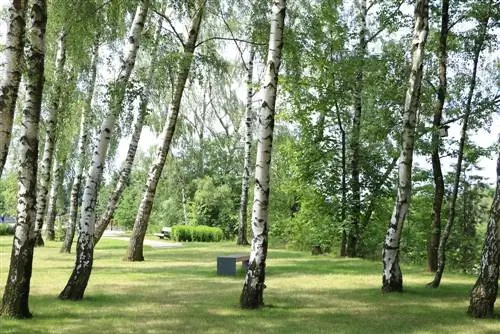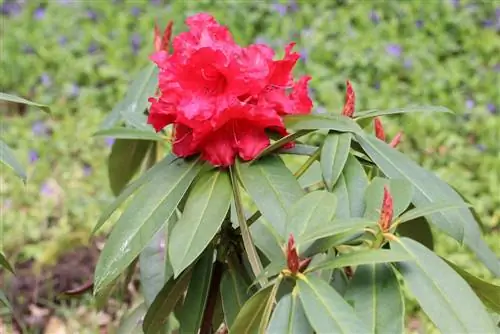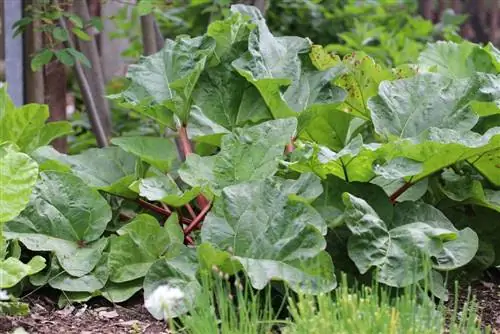- Author admin [email protected].
- Public 2023-12-17 03:39.
- Last modified 2025-01-24 12:45.
If you want to plant birch trees, you don't have to put a lot of effort into caring for them. This is especially true if a suitable location has been chosen for the trees. What matters?
Light
Although birches thrive in partial shade or shade, they prefer full sun locations. It therefore makes sense not to plant a birch tree in the shade of a house wall or even on the north side. South and west as well as places without shadows from buildings or larger plants are ideal.
Substrate
The birch trees are also not picky when it comes to the substrate. Sandy, loamy, moor or humus, moist or dry - the main thing is that there are enough nutrients. Ideally, the pH value is between five and eight. Well-drained, fresh soils are also beneficial for the growth and he alth of trees. Adding well-rotted compost directly when planting but also as an occasional fertilizer also helps to provide the birch with comprehensive care and to keep it resilient.

Protection
Birches often grow in places that are unsuitable for other trees. This can be due to the dryness or moisture of the soil, too much or too little light. In nature, the adaptable plant often appears in groups that consist solely of birch trees.
Because the birch has difficulty asserting itself against competing trees. However, birches do not need any special protection in winter. Most varieties not only withstand light frost well, but also survive temperatures of up to -45 degrees Celsius.
Place
Birches don't get very old, up to 120 years old. However, with a maximum height of 30 meters, they can become comparatively expansive. Therefore they are by no means suitable for every garden. However, height alone is not the only potential problem. Birch trees are shallow-rooted. This means that the trees do not grow deeply below the ground, but rather the root network spreads over a wide area. A birch tree should therefore not be planted near walls, walls and paths. In addition, several meters of distance from other larger plants should be planned when choosing the location.

Otherwise, damage to paving slabs and walls could occur as the roots can cause cracks. However, if trees or other large plants are too close, water and nutrients can be drawn from the ground in such large quantities, which limits the growth and resistance of the plants.
Support
As robust and easy to care for as birch trees are, support should be provided for young trees. This makes sense, especially in exposed areas with sometimes strong winds, to enable straight growth and prevent both falling over and snapping. A normal post is sufficient for this purpose.
Note:
Due to their great resistance and easy-care nature, birch trees can be planted all year round as long as there is no frost. Nevertheless, early autumn is an optimal time for planting, as the trees can then grow to a small extent before winter. Spring is also a suitable planting time.






